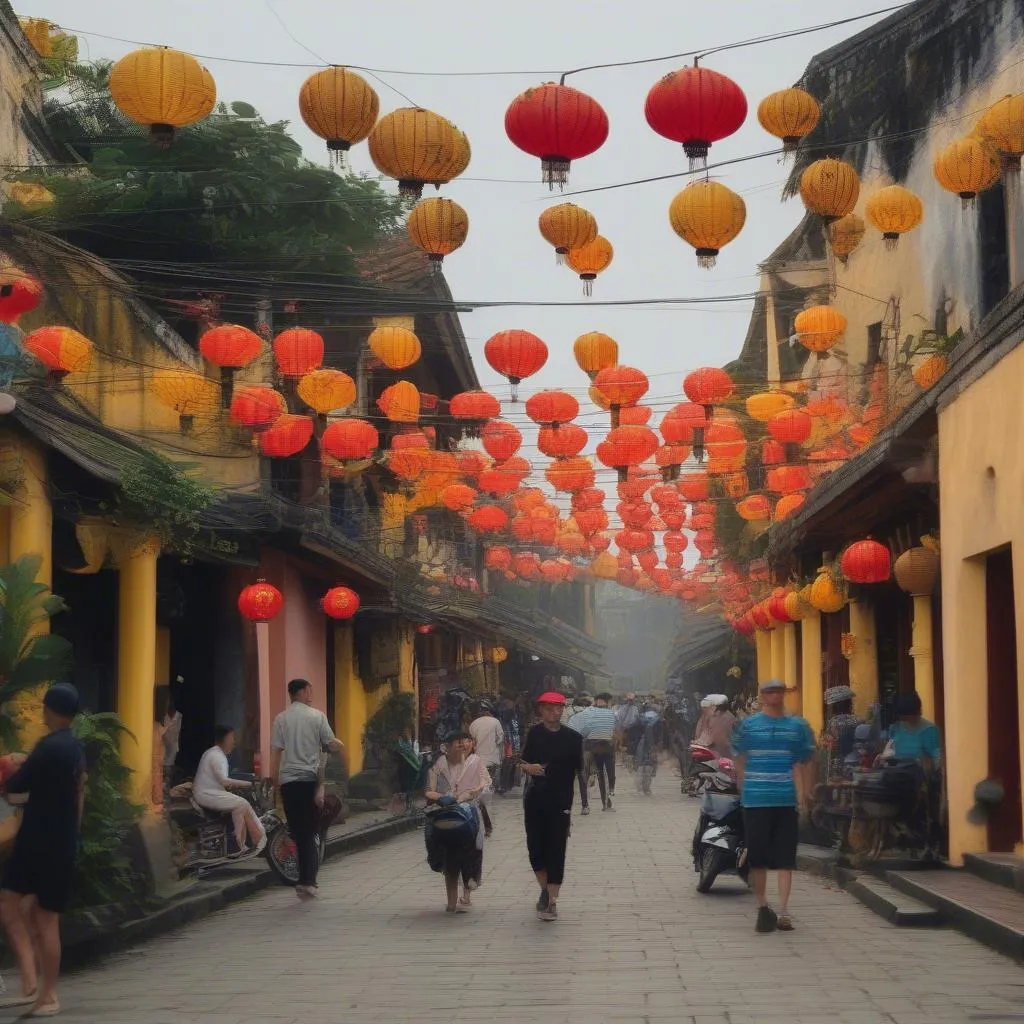Picture this: you’re strolling through the charming streets of Hoi An, the scent of ancient spices wafting through the air, when suddenly, a group of tourists disrupts the tranquility by loudly bargaining with a vendor, ignoring the local customs. This, my friends, is a prime example of what not to do as a traveler.
Traveling is a privilege, one that offers us incredible opportunities to explore new cultures, broaden our perspectives, and create lasting memories. But with this privilege comes a responsibility to be mindful and respectful guests. That’s where travel etiquette comes in. It’s not about being a perfect traveler, but about fostering understanding and appreciation for the places we visit and the people we meet.
Why is Travel Etiquette Important?
Think of travel etiquette as an invisible passport to authentic experiences. By respecting local customs, traditions, and environments, we open ourselves up to genuine interactions and deeper connections with the destinations we visit.
Dr. Nguyen Minh Anh, author of “Cultural Sensitivity for the Modern Traveler,” emphasizes, “Travel etiquette is not about erasing your own identity, but rather about adapting your behavior to minimize cultural misunderstandings and demonstrate respect.”
Key Principles of Responsible Travel Etiquette
1. Research and Respect Local Customs
Before you even pack your bags, take some time to research the customs and traditions of your destination.
- Dress Code: Are there any dress codes you should be aware of, especially when visiting religious sites?
- Photography: Is it appropriate to take photos everywhere, or are there restrictions in certain places?
- Tipping: Is tipping customary, and if so, what is the expected amount?
- Language: Learn a few basic phrases in the local language. Even a simple “hello” or “thank you” can go a long way.
2. Be Mindful of Your Environmental Impact
From the bustling streets of Hanoi to the pristine beaches of Phu Quoc Island, every destination has its own unique ecosystem. Here’s how you can minimize your environmental footprint:
- Reduce, Reuse, Recycle: Pack light, use reusable water bottles, and say no to single-use plastics.
- Conserve Water: Be mindful of your water usage, especially in areas prone to drought.
- Support Sustainable Tourism: Choose eco-friendly accommodations and tour operators committed to responsible practices.
3. Be Respectful in Sacred Spaces
Vietnam is rich in cultural and religious diversity. When visiting temples, pagodas, or other religious sites, remember these essential tips:
- Dress modestly: Cover your shoulders and knees. Some temples may require you to remove your shoes.
- Speak softly: Maintain a respectful tone of voice.
- Ask for permission: Before taking photos or videos, always ask for permission.
4. Embrace Cultural Differences
One of the most enriching aspects of travel is experiencing different cultures. Embrace the differences! Be open to trying new foods, learning about local history, and engaging in conversations with locals.
Remember, what may seem strange or unusual to you is often a cherished part of someone else’s cultural heritage.
5. Be Patient and Understanding
Travel can be unpredictable. Flights get delayed, language barriers can arise, and cultural misunderstandings can happen. Embrace these moments with patience and understanding.
6. Support Local Communities
One of the most rewarding ways to travel responsibly is by supporting local communities.
- Shop Local: Purchase souvenirs from local artisans and dine at locally owned restaurants.
- Bargain Respectfully: While bargaining is common in many cultures, do so with a smile and respect for the vendor’s livelihood.
- Give Back: Consider volunteering for a local organization or donating to a cause that aligns with your values.
 Hoi An Street Scene
Hoi An Street Scene
Imagine this: you’re exploring the enchanting temples of Vietnam, marveling at their intricate carvings and serene atmosphere. Suddenly, you notice a group of tourists taking selfies with their flash on, disrupting the sacred silence and disrespecting the spiritual space. This, my friends, is a prime example of how our actions can have a negative impact on others and the places we visit.
 Temple Interior in Vietnam
Temple Interior in Vietnam
While travel should be an adventure, it’s important to remember that we are guests in the lands we explore. Our actions, whether intentional or not, can have a significant impact on the local culture and environment. So, let’s commit to being respectful travelers, leaving only footprints and taking only memories.

